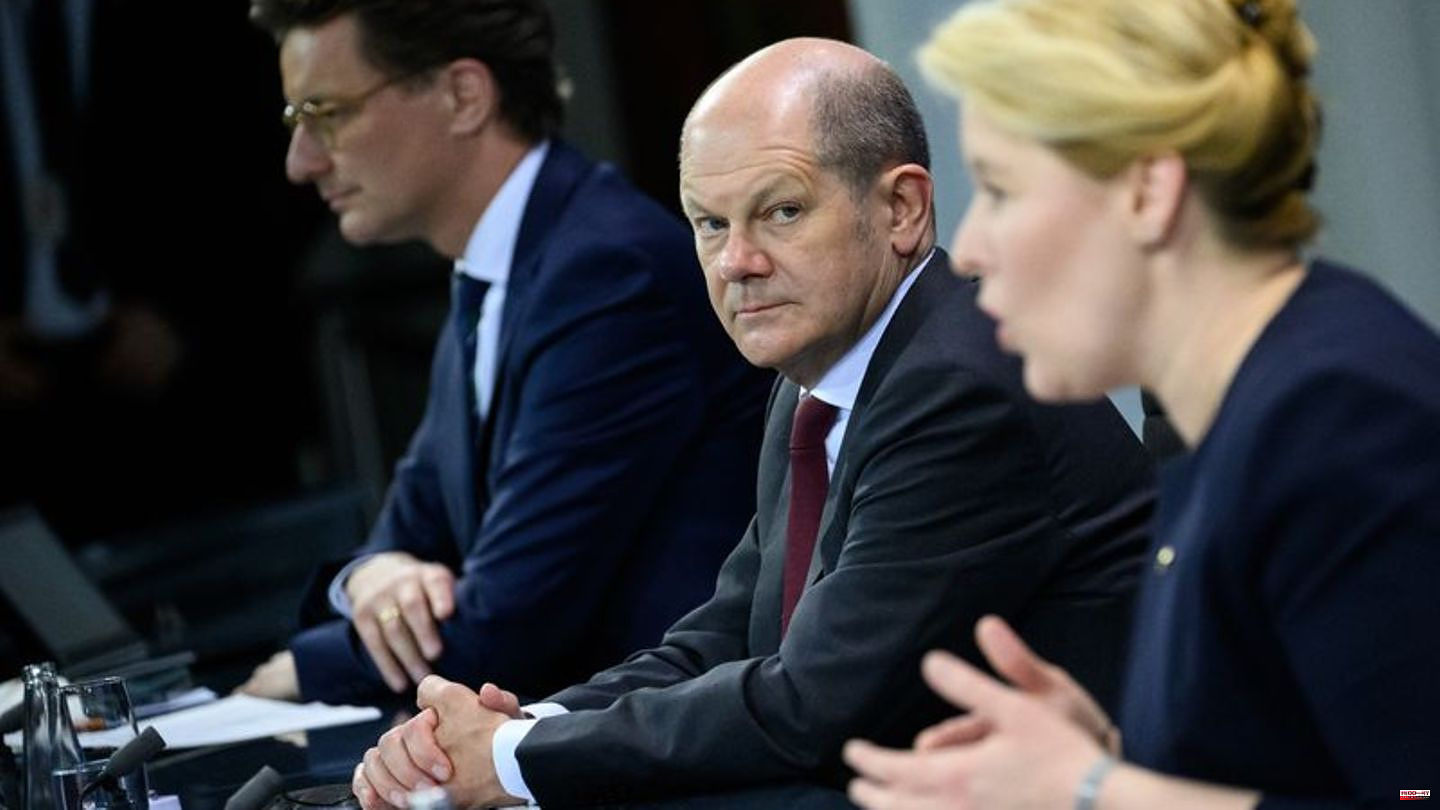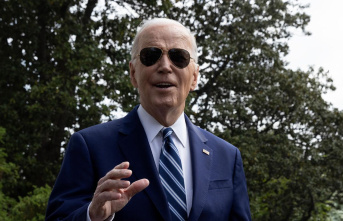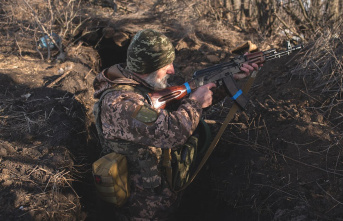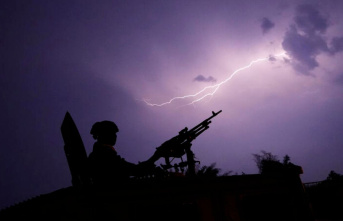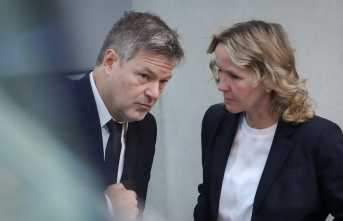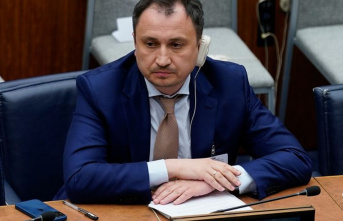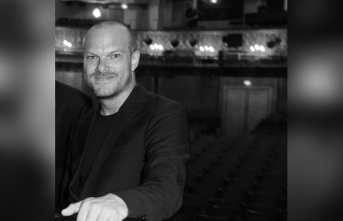Chancellor Olaf Scholz (SPD) wants to talk to the prime ministers of the 16 federal states about the financing of the new relief package. Scholz was "in the process of finding a date" for a special prime ministerial conference in order to talk to the federal states as quickly as possible, said government spokesman Steffen Hebestreit in Berlin.
Federal states have warned of massive costs. The Association of Taxpayers (BdSt) called for a commitment to the debt brake before the consultations on the federal budget that began on Tuesday and raised concerns that a "heavy bill" could follow.
North Rhine-Westphalia's Prime Minister Hendrik Wüst (CDU) said to several media: "If the states are to pay, they must also be able to make decisions." This package must "finally sit and effectively relieve pensioners, students and social security recipients and small and medium incomes as well as energy-intensive industries." SPD parliamentary group leader Rolf Mützenich spoke of "national responsibility". He said before a parliamentary group meeting in the Bundestag: "It can only be an effort by everyone."
Relief package has a volume of around 65 billion euros
The day before, the traffic light coalition presented a third package of measures to compensate for the rapidly rising prices. The federal government estimates the volume at around 65 billion euros. It includes, among other things, direct payments for pensioners and students, tax breaks and an increase in the standard rates for basic security and child benefit. An electricity price brake for a certain basic consumption is also planned. In addition, the traffic light is striving for a nationwide successor to the 9-euro ticket in local transport, namely in the price range of 49 to 69 euros per month. The federal government wants to subsidize 1.5 billion euros if the states pay at least as much.
Finance Minister Christian Lindner (FDP) wrote on Twitter that they are working on estimates for the relief: A family of four with an annual income of 31,000 euros will be relieved of 1500 euros, with an income of 66,000 euros it is 1000 euros. "This shows that the measures are not only effective, for example, in basic security, but also in the "working middle"", says Lindner.
The taxpayers' association said that according to the information available so far, which is still incomplete, a family with two earners with an annual income of EUR 60,000 would receive EUR 432 more in child benefit in the coming year and pay EUR 342 less income tax than at present. However, it should be taken into account that an increase in child benefit is pending in any case as part of the constitutionally required increase in the child allowance. Similarly, tax relief is required in the course of reducing the cold progression. The planned cornerstones would not do justice to the actual inflation. In addition: "The traffic light has placed a large order on account. But it doesn't say a word about when and how the massive bill will be paid," said BdSt President Reiner Holznagel.
Opposition criticizes the resolutions
The CDU criticized the planned relief steps as insufficient. The package does not do justice to the crisis, said CDU General Secretary Mario Czaja. A relief for normal earners in the middle of society has not been achieved, not even for medium-sized companies. In view of an impending energy shortage, there were also no statements about the offer, such as an extension of the use of nuclear power.
Violent criticism of the resolutions came from the Left and AfD. Linke boss Martin Schirdewan criticized the planned one-off payments as patchwork. Continuous grants are needed for people with small and middle incomes. Group leader Dietmar Bartsch said with a view to the upcoming deliberations on the federal budget in parliament: "We will protest against this traffic light decision not only in the upcoming budget week here in the German Bundestag, but also on the streets and squares." He firmly believes that pressure from the street can help. The party and faction leaders of the AfD, Alice Weidel and Tino Chrupalla, sharply criticized the agreed relief package. Chrupalla said the federal government's policy will fail and not survive the winter.
The Bundestag begins its deliberations on the budget for the coming year on Tuesday. During the budget week, the budgets of the individual ministries are discussed until Friday. On Wednesday there will be a so-called general debate with Chancellor Olaf Scholz (SPD) when the budget of the Chancellery is being discussed. The budget provides for expenditure of 445.2 billion euros - significantly less than in previous years, when budgets were even more heavily influenced by economic aid in the corona pandemic.

